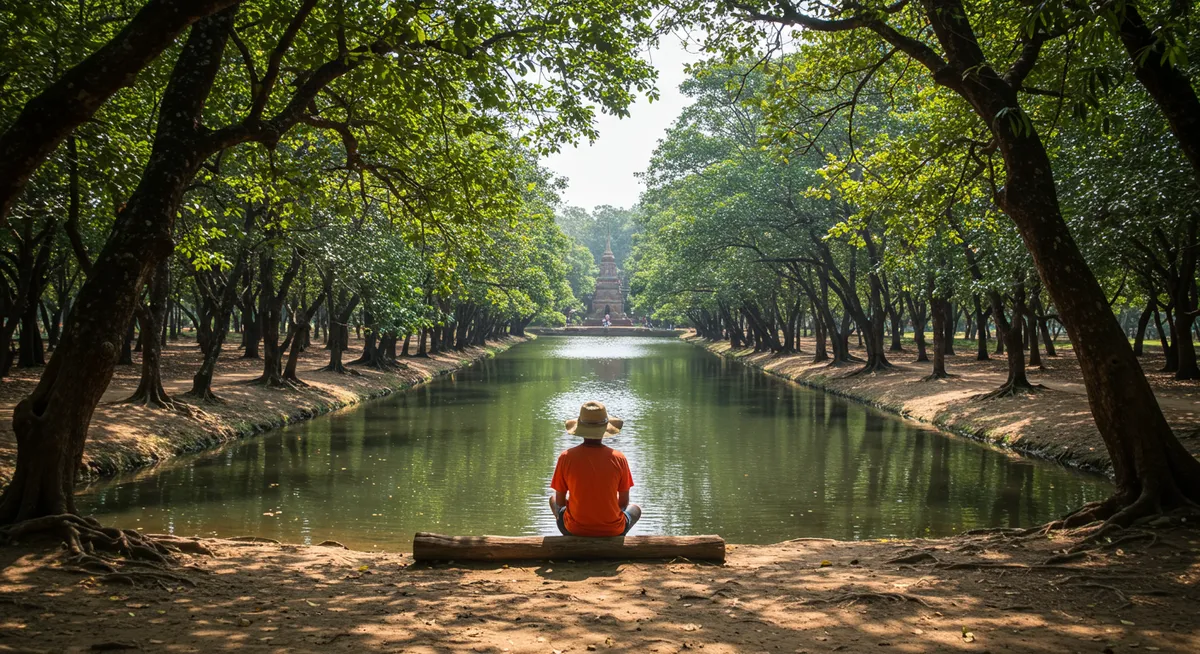
Sustainable Phitsanulok Travel Tips
Table of Contents
Want to find the best nature experiences for this destination? Chat with our nature tourism specialist!
Get Nature TipsCategory: sustainable-travel-tips-phitsanulok
Embrace Eco-Friendly Adventures in Phitsanulok
Embarking on a journey to Phitsanulok offers a unique blend of cultural immersion and natural beauty. As someone deeply committed to responsible tourism, I believe our travels should enrich, not diminish, the places we visit. This guide provides practical sustainable travel tips Phitsanulok, ensuring your trip is as beneficial to the local community and environment as it is memorable for you. Let's explore how to make your Phitsanulok adventure truly green.
Choose Eco-Conscious Accommodation
When planning your stay in Phitsanulok, prioritize hotels, guesthouses, or resorts that actively practice environmental sustainability. Look for certifications or clear statements about their efforts, such as energy conservation, waste reduction programs, or water recycling. Many local establishments are beginning to adopt greener practices, making it easier to find an eco-friendly option. From my experience, a simple inquiry to the hotel about their green initiatives can reveal much. Opting for places that engage with the community also fosters a more holistic approach to responsible tourism, benefiting everyone involved.
Support Local Businesses and Artisans
A cornerstone of sustainable travel tips for Phitsanulok involves channeling your spending directly into the local economy. Patronize small, independently owned restaurants, shops, and markets. Buying local crafts and produce not only ensures your money directly benefits families but also reduces the carbon footprint associated with imported goods. Consider visiting the Phitsanulok Night Bazaar for authentic food and souvenirs. I always seek out traditional handmade goods; it’s a wonderful way to connect with the culture and support the craftspeople. This approach helps sustain local livelihoods and preserves unique cultural heritage.
Minimize Your Environmental Footprint
Reducing your personal impact is crucial for sustainable travel in Phitsanulok. Carry a reusable water bottle and refill it at your accommodation or designated stations to cut down on plastic waste. Decline single-use plastics whenever possible, like straws and bags. Conserve energy by turning off lights and air conditioning when leaving your room, and be mindful of water usage. Many hotels, especially those embracing sustainability, encourage guests to reuse towels and linens. Every small action, from recycling properly to minimizing waste, contributes to a healthier environment in this vibrant city.
Respect Local Culture and Traditions
Immerse yourself respectfully in Phitsanulok's rich cultural tapestry. Learn a few basic Thai phrases, dress modestly when visiting temples and sacred sites, and be aware of local customs, such as removing your shoes before entering homes or temples. Engaging with locals in a polite and open manner enriches your travel experience and fosters positive cross-cultural understanding. Visiting historical sites like Wat Phra Si Rattana Mahathat offers a profound insight into the region's heritage. A genuine interest in the local way of life, from my perspective, is the most rewarding aspect of responsible travel.
Explore Nature Responsibly
Phitsanulok is a gateway to stunning natural landscapes. When venturing into areas like Phitsanulok nature attractions, adhere to
Opt for Sustainable Transportation
Moving around Phitsanulok can be an eco-conscious experience. Wherever possible, choose walking or cycling to explore the city center, soaking in the sights and sounds at a leisurely pace. For longer distances, utilize local public transport like songthaews (shared taxis) or tuk-tuks, which are often more fuel-efficient and support local drivers. Consider shared rides or carpooling if traveling with a group to national parks like Thung Salaeng Luang National Park. From my own travels, I've found that embracing local transport provides a more authentic glimpse into daily life while reducing your carbon footprint significantly.
Frequently Asked Questions
What does 'sustainable travel' mean for Phitsanulok?
How can I reduce plastic waste while traveling in Phitsanulok?
Are there specific eco-friendly tours available in Phitsanulok?
Embracing sustainable travel tips for Phitsanulok allows you to experience the city's charm while contributing positively to its future. By making conscious choices, from supporting local businesses to respecting cultural norms and minimizing your environmental impact, you become a part of the solution. Your responsible actions ensure that Phitsanulok remains a vibrant and welcoming destination for generations to come. For more insights into mindful exploration, visit Tourist Nature and plan your next responsible adventure.